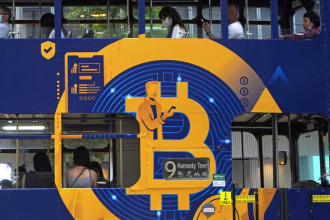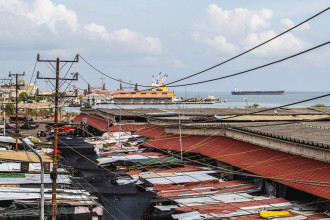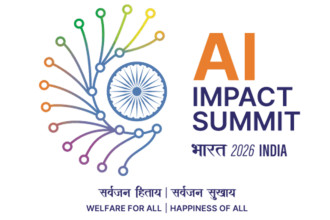-1713420080.jpg)
BRUSSELS: Friedrich Naumann Foundation (FNF) for Freedom organised the 'European Dialogue to Bridge Understanding Between South Asia and Europe on LGBTQIA+ Issues' on April 9 in Brussels, Belgium.
The primary objective of the programme was to initiate a conversation on LGBTQIA+ rights and equality. The European Union (EU) has made progress on the issue, but challenges remain and it is time to tackle discrimination and promote inclusivity together.
The event was moderated by Inaya Zarakhel, a Dutch-Pakistani actress and staunch activist for queer rights. Identifying as a transgender woman, she is breaking barriers both on and off-screen.
-1713420079.jpg)
During his opening remarks, Dr Carsten Klein, Regional Director for FNF South Asia, personally commended Premnath C Dolawatte, Attorney at Law and Member of Parliament of Sri Lanka, for not only being a high-ranking political figure but also for being an activist for LGBTQIA+ related issues in parliament. He stated that LGBTQIA+ issues are central to FNF South Asia because they are an integral part of human rights. Dr Klein mentioned that the foundation has been working on issues related to LGBTQIA+ rights, political rights, social rights, health-related issues, and community-related issues. He stated that FNF South Asia will continue this work in the future. He also shared that coming to Brussels provided an opportunity to learn about the European perspective on the issue. Dr Klein emphasised that the commitment to the LGBTQIA+ community was also a commitment to democracy.
-1713420079.jpg)
Michael Kauch, a German politician representing the Free Democratic Party in the European Parliament, began his conversation by expressing appreciation for the FNF's commitment to LGBTQIA+ rights worldwide, particularly in South Asia. He said this was a great example of the work of FNF in the region. He informed that he was both the Spokesperson of the Free Democratic Party on LGBTQIA+ in the European Parliament and also a member of the Foreign Affairs Committee. He acknowledged that the committee is currently facing challenges. Kauch added that, apart from a handful of countries on the Arab Peninsula, this is the region where we see the most deterioration in the situation of the LGBTQIA+ community at the moment.
Kauch mentioned that there were a few good examples in the sub-Saharan region, like Botswana, which has made significant progress. He also cited the example of Burundi where the president, in a public speech, suggested that gays should be brought into the stadium and stoned, and that this would not be a sin. He also gave the example of Uganda where the legal penalties have been increased to life imprisonment and in certain cases, the death penalty. He stated that countries that share EU values have a closer relationship and receive more cooperation than those who do not share those values, and this should also be applied to the LGBTQIA+ human rights situation. He mentioned that he has heard of progress in the South Asian region, unlike other regions where there is a deterioration in the situation.
Meanwhile, Ruhaan Joshi, an experienced public policy professional passionate about driving positive change, while discussing the status of LGBTQIA+ individuals in South Asia, stated that the community has made significant strides in terms of the recognition and visibility of LGBTQIA+ individuals in recent years, and to a large extent, legal recognition of LGBTQIA+ individuals. However, he mentioned that at the same time, it is true that particularly in countries where they have historically more religiously conservative governments, society has always been a bit more centrist and conservative. These issues have never been seen as issues that exist in our region but as an imposition of some distant idea. Joshi shared that they have fought this battle for a long time and in the last 20 years, particularly, have covered a great distance across all the countries in South Asia in terms of legal recognition.
Joshi shared that there has been significant improvement in the recognition of transgender rights in South Asia. He mentioned that out of the eight countries, six have made progress in recognising the rights of transgender individuals. He said this could be legislation passed by countries like Pakistan or India or the Supreme Court judgement in Nepal. Another example would be the recognition of transgender rights in Bangladesh. He added that Sri Lanka and Bhutan are also making some movement in that direction. He further stated that the transgender identity is distinct in South Asia. He pointed out that it is a cultural identity and the region has had a distinct third gender for a very long time. Joshi also spoke about the situation of the LGBTQIA+ community in individual countries in South Asia.
Similarly, Dr Miłosz Hodun, President of Projekt: Polska Foundation and legal expert at the HejtStop programme, shared that this was the first time a resolution on LGBTQIA+ human rights was discussed in the European Parliament, indicating a positive shift in the situation. He added that when discussing rights from a European perspective, considering that Europe comprises the public in 27 member states, the situation in these countries varies significantly. He noted that over the years, it has become apparent that the disparity between some states is widening. Dr Hodun shared that countries in the east and south of the continent are not progressing as much as countries in the west and north.
Dr Hodun emphasised that while Europe may appear to be a very good and safe place from a distance, there is still much work to be done. He added that nothing can be taken for granted because in many countries where it was thought that the situation was very good and only minor details needed to be addressed, this was not the case. Populists, especially right-wing populists, exploited all the loopholes and regressed on human rights. Dr Hodun stressed the need for unity and the fight for all rights because nothing can be taken for granted. He added that this is why the European elections this year are so important, because not only do we have to advance the rights that we don't currently have, but we also have to protect what we do have.
-1713420080.jpg)
The event concluded with a question-and-answer session.




-1770286640.jpg)

